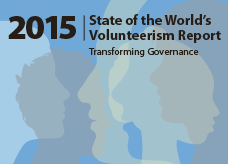 I’m a part of the March for Science Facebook group, for people that were in the Marches for Science all across the USA on April 2017 or that supported such. A lot of the talk on the group has been about science education and public relations. There are individuals and communities all over the USA – and the world – fighting against science-based decision making in public policies and science education in schools, and many on the group feel this is because of poor wording and poor outreach by scientists and those that support science regarding public relations. In my ongoing quest to be a better communicator, I’ve watched these discussions closely.
I’m a part of the March for Science Facebook group, for people that were in the Marches for Science all across the USA on April 2017 or that supported such. A lot of the talk on the group has been about science education and public relations. There are individuals and communities all over the USA – and the world – fighting against science-based decision making in public policies and science education in schools, and many on the group feel this is because of poor wording and poor outreach by scientists and those that support science regarding public relations. In my ongoing quest to be a better communicator, I’ve watched these discussions closely.
Recently, someone posted the following regarding how we communicate about science. I think it’s a great testimony regarding what works, and what doesn’t, regarding swaying public opinion, changing people’s minds and fighting misinformation. I’m sharing it here, with her permission, but without her name to protect her identity:
—
I’m not a scientist. I’m not afraid of science but I also don’t have a strong grasp of most science related jargon. I joined this group along with a few other science groups/pages as I heard more and more of anti-science rhetoric from our govt. Allthough I don’t understand a lot of scientific things that doesn’t mean I don’t realize the importance of science for our society and for our future.
I have learned SO MUCH from reading posts and comments. The reason I have learned so much? The reason I am no longer “afraid” of GMO’s? The reason I have changed my mind on other popular misconceptions? Because my fear was never the science. My fear was that I didn’t know what information to trust. Money talks. It’s hard to figure out who is paying. Do I trust a science study that was paid for by a big corporation? Do I trust a study that’s published but not peer reviewed? WHO do you trust?
The common thread I’ve found as I read posts and comments in order to learn more is how stupid I am. How dumb was I to not trust GMO’s. People’s comments were blatantly MEAN. And sure, I was completely uneducated about GMO’s. I read the wrong information. I trusted the wrong sources. But again, without hours of research to find out funding sources, etc HOW do I know what to trust?
This question was amazing. I always want to learn more. I want to understand about so many things – to give my kids the best future possible. The best food to eat. The best meds for my asthmatic child. The best environment for them to grow up in, etc. But here’s the thing. If I wasn’t determined to do the best for my kids . . . by the 100th ridiculing comment on a post I found interesting I would have stopped following and learning. Heck by the 20th I would have written off these sciences pages.
Even in this thread there are those using terms like “stupid,” “brainwashing,” etc. Very derogatory terms and grouping all people who don’t have a knack for science into one realm. I have a great head for business, finances and can analyze the heck out of any non-technical literature. I don’t make fun or ridicule those people who don’t have have that ability. It accomplishes nothing.
So thank you to those of you who answered this post thoughtfully. I’m certain there are many of you who diligently try over and over again to get your point across. Don’t give up. Changing peoples’ minds is never easy but in this case it’s worth the fight.
—end quoted text—
Also see:
- fake news, folklore & friendships
- Facebook use to organize Women’s Marches: lessons learned
- Propaganda for good
- UN, NGO efforts to counter hate
- Ukrainian journalism student project: Stopfake.org
- Recommendations for UN & UNDP in Ukraine to use Twitter, Facebook, Blogs and Other Social Media to Promote Reconciliation, Social Inclusion, & Peace-Building in Ukraine (PDF)


